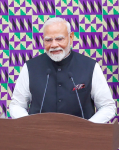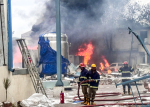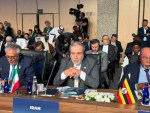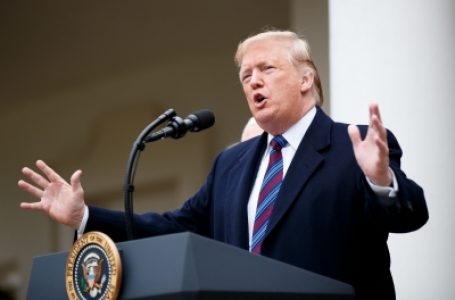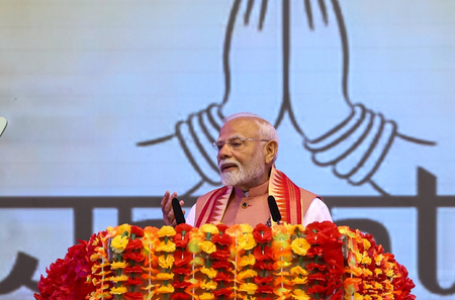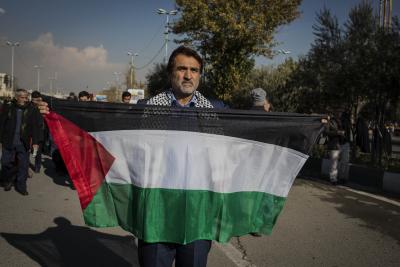
New Delhi: The spectacle of widespread protests erupting across the Arab world paints a vivid picture of the chasm that exists between the choices of regimes and the sentiments of their populations, according to Tariq Dana, Associate Professor of Conflict and Humanitarian Studies at the Doha Institute for Graduate Studies.
From the streets of Cairo to the squares of Amman, in Morocco and beyond, people have gathered en masse to voice their opposition to their governments’ realignment with Israel, Dana writes in the New Arab.
This groundswell of public activism not only underlines the dissonance between Arab regimes and Arab people, but also signals a resurgent grassroots commitment to the Palestinian cause, challenging the top-down narrative that has sought to marginalise it, the article said.
For over a decade, mainstream commentators and policymakers have relegated the Palestinian cause to the periphery of Middle East geopolitics. As regional power competition among players like Iran, Saudi Arabia, and Turkey rise in prominence, and as issues like civil wars in Syria, Yemen and Libya dominated headlines, the Palestinian struggle has often been viewed as an anachronistic sideshow – important for symbolic reasons, perhaps, but less so for practical geopolitical calculations, Dana wrote.
This false perception has been reinforced by the deliberate actions of some Arab regimes to distance themselves from the Palestinian struggle. The United Arab Emirates in particular, along with other signatories of the Abraham Accords, stands as a stark example. By normalising relations with Israel, these regimes conveyed a political message that Palestine was no longer central to the Arab agenda or to peace in the Middle East, the article said.
Add to that the complicity of the Palestinian Authority; a corrupt body that often serves to enforce Israel’s agenda. Its passivity and governance failures have inadvertently fortified the myth of the irrelevance of the Palestinian struggle, cementing its status as an institutional obstacle rather than a representative body.
The Al-Aqsa Flood operation radically upends this conventional wisdom. It demonstrated that Palestinian resistance could substantially challenge Israeli military capabilities, compelling a re-evaluation of regional geopolitics, the article said.
Italian Institute for International Political Studies said in a recent paper that over the last few days, thousands of citizens across Arab countries have taken to the streets to express their support for the Palestinians and outrage over the blast at Gaza’s Al-Ahli hospital on October 17, triggering a cycle of violence and hatred. If there is one thing that the recent wave of demonstrations in the region has proven, is the enduring sympathy most Arabs still hold for the Palestinian cause.
The mass mobilisations have, in some cases, displayed a disconnect between the Arab countries’ leadership and the general public regarding ongoing normalisation processes with Israel. This is especially true for Bahrain and Morocco, where widespread protests, in solidarity with Palestine and against the Israeli offensive in Gaza, have also called for an end of the normalisation of relations with the Jewish state, the research said.
The leaders of Egypt and Jordan, the two Arab countries with the longest-lasting diplomatic ties with Israel, have become increasingly aware of the difficulties in balancing relations with Tel Aviv (and the traditional Western allies), on the one hand, and the domestic popular support for the Palestinians, on the other, as per the paper.
Besides, both Cairo and Amman are apprehensive about the destabilising effects of the war, particularly in terms of the potential influx of new refugees. By capitalising on the popular anti-Israel sentiments in Tunisia and lashing out against the country’s Western partners, President Kais Saied is seeking to cement his popularity and legitimacy even further.
Unlike much of the Arab world, Saudi Arabia and the United Arab Emirates have not thus far been rocked by the anger of their citizens: the limited space for dissent and an increasingly less cold popular perception towards Israel in recent years appear to explain, at least in part, the absence of mass mobilisations in these countries.
While Hamas’s deadly attack is being dealt within the Arab governments’ palaces, the people in the squares of the Arab world want their voices to be heard, the paper said.
IANS





